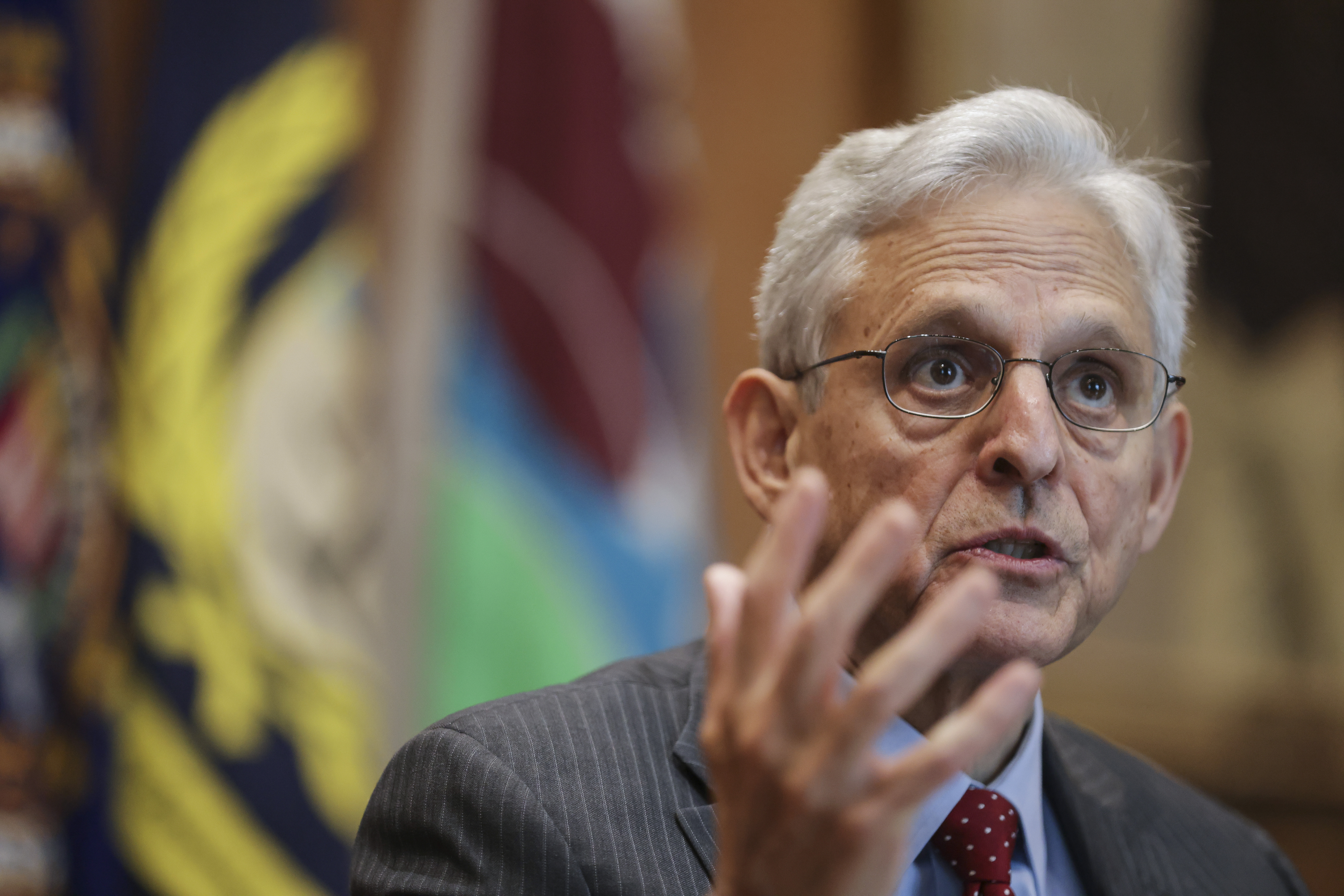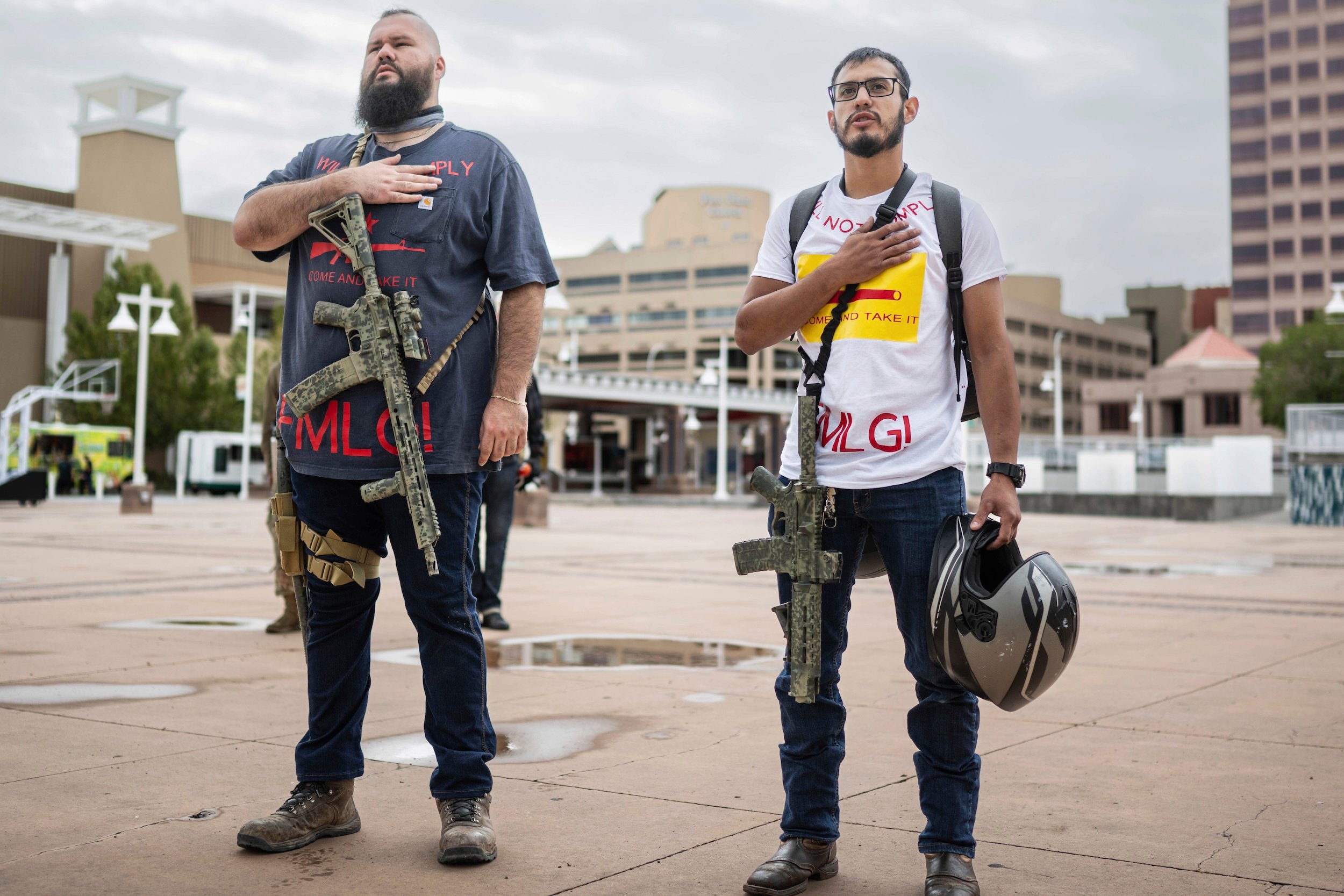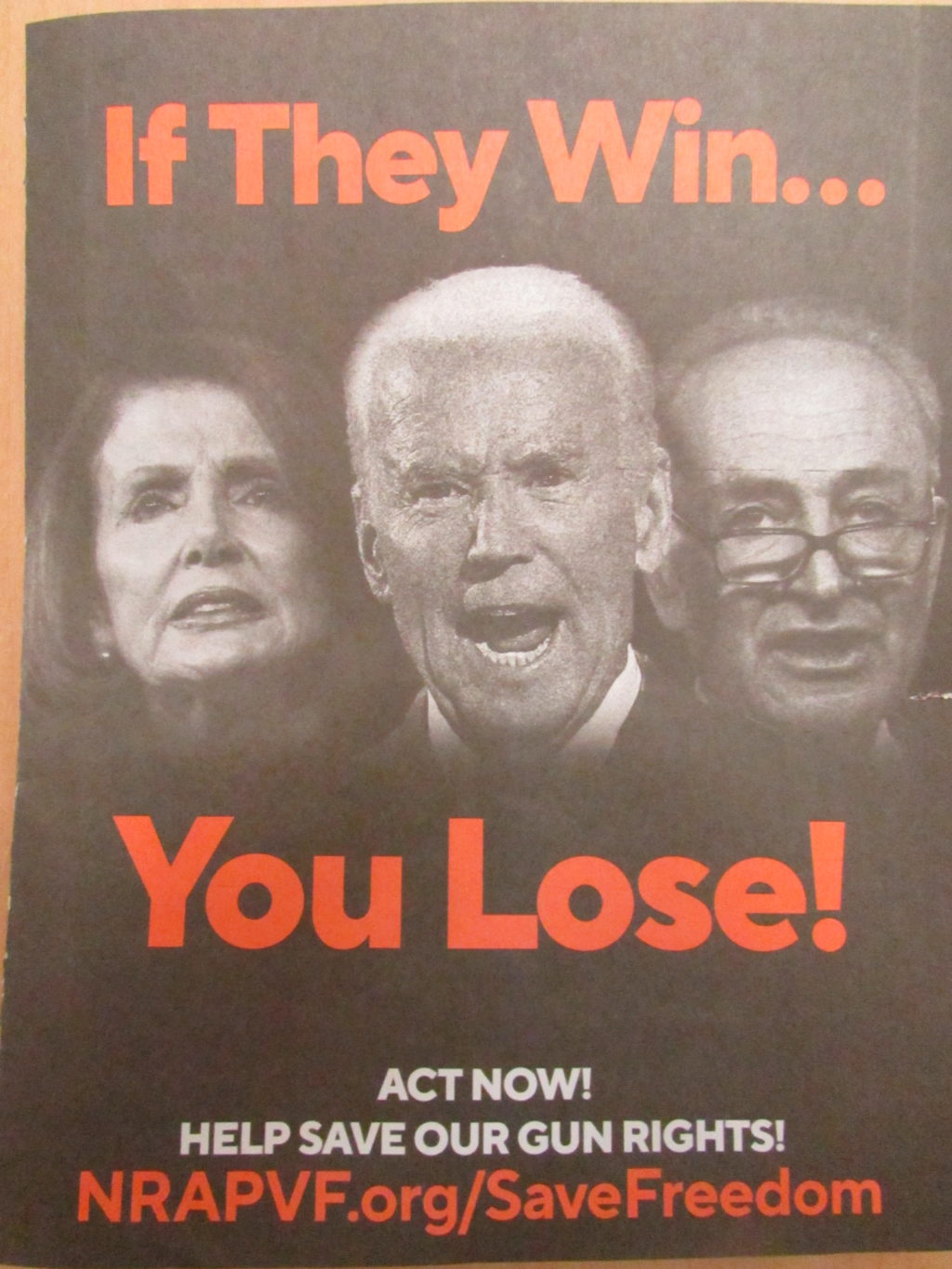The Biden Administration Is Trying to Expand Background Checks for Gun Sales
A new rule is designed to end years of ambiguity and allow law enforcement to crack down on unlicensed gun dealers.

The Biden administration has finalized a rule meant to reduce the number of guns sold without background checks.
Calling it the largest expansion of background checks in more than 30 years, Attorney General Merrick Garland told reporters on April 10 that the new rule will close a gap in federal law that has allowed businesses to avoid becoming federally licensed gun dealers while still routinely selling guns at gun shows or on the internet.
“Under this regulation, it will not matter if guns are sold on the internet, at a gun show, or in a brick-and-mortar store,” Garland said during the press briefing. “If you sell guns predominantly to earn a profit, you must be licensed and you must conduct background checks.”
The new rule will take effect 30 days after it’s published in the Federal Register.
Federal law has long been ambiguous about who needs to obtain a Federal Firearms License to lawfully sell guns. Since 1968, the Gun Control Act has required anyone “engaged in the business” of dealing firearms to get a license. Congress intended to exempt people who only sell guns to friends and family or on occasion.
In 1986, lawmakers amended the definition to include anyone selling guns with the objective of “livelihood and profit.” In 1993, Congress passed the Brady Handgun Violence Prevention Act, which requires federally licensed gun dealers to run background checks.
Yet, for decades, thousands of gun sellers have flouted that requirement by taking advantage of the ambiguities surrounding the meaning of “engaged in the business” and “livelihood and profit.” Selling guns for profit was a relatively clear standard, but it was more difficult to show that someone was selling guns for their “livelihood.”
Investigating America’s gun violence crisis
Reader donations help power our non-profit reporting.
At least 20 states have expanded the background check requirement to unlicensed dealers, but in most of the country, they can sell firearms to the public without running a check on purchasers.
In 2022, President Joe Biden signed the Bipartisan Safer Communities Act, which attempted to clarify the definition by removing references to “livelihood” and expanding it to cover anyone who repeatedly sells guns to turn a profit.
The new rule builds out that definition in an attempt to enable enforcement. It lays out activities that could be used as evidence of someone selling guns for profit, including advertising, setting up a system to accept credit card payments, renting space to sell guns, applying for a state or local business license, or hiring security.
The rule will also close a gap known as the fire sale loophole, which has allowed gun dealers who have gone out of business or had their licenses revoked to transfer their gun inventory into a personal collection so that they can then sell it off without conducting background checks. That comes as the Bureau of Alcohol, Tobacco, Firearms and Explosives has increased license revocation in recent years after the Biden administration asked the agency to implement a “zero tolerance” policy on lawbreaking gun dealers in 2021.
The Justice Department estimates that as many as 23,000 unlicensed gun sellers could be required to obtain a license as a result of the new rule.
It’s difficult to determine how many firearms are sold by unlicensed gun sellers every year. A 2017 study found that some 22 percent of Americans acquired their most recent firearm without a background check, though not all of those purchases would be covered by the new rule. For example, infrequent sales for purposes other than profit, as well as transfers between friends and family, would remain exempt.
The effectiveness of the new provisions will depend upon the ability of the under-resourced ATF to enforce them.
Read Next

The Armed Era
A federal report released on April 4 shows that between 2017 and 2021, ATF investigations linked unlicensed dealers to more than 68,000 trafficked guns. Those guns were used in 368 shootings.
“There is a large and growing black market of guns that are being sold by people who are in the business of dealing firearms, but are doing it without a license,” said ATF Director Steven Dettelbach. “Therefore, they’re not running background checks as the law requires. And this noncompliance with the law is fueling violence.”
While calling the new rule an important step, administration officials said more is needed from Congress to expand background checks to all gun purchases.
Vice President Kamala Harris, who is overseeing the White House Office of Gun Violence Prevention, said the new rule could help curb firearms trafficking and save lives.
“This single gap in our federal background check system has caused unimaginable pain and suffering,” she said. Harris pointed out that next week will mark 25 years since the 1999 Columbine High School shooting, which was carried out with guns purchased from an unlicensed seller at a gun show.
“In the years to come,” Harris said, “I do believe countless families and communities will be spared the horror and the heartbreak of gun violence by this new rule.”
